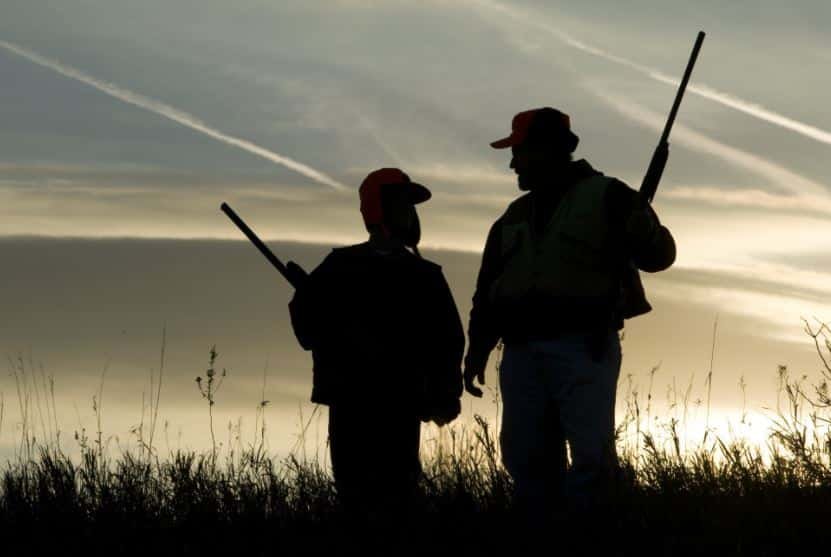Lifestyle
Top Hunting Tips For Beginners

As a beginner hunter, you’ll need some tips to advance your game and give you the best possible chance of scoring a kill. That’s what you’ll find on this page, where we’ve gathered some of the best beginner-friendly tips and tricks that will make your first hunting experiences go a whole lot smoother.
There’s every chance that you’re not properly equipped yet, so we’ve kept most of our tips relatively simple (but effective, of course). If you are interested in gear, you’ll want to look at blinds or stands. Fortunately, you can find many pages arguing about the lightest weight climbing tree stand online.
[lwptoc]
Patience Is Key
The first thing you need to know is that patience is key. You won’t get anywhere by rushing animals and hoping for the best. Humans are endurance hunters, meaning we play the long game when taking other animals down. This can involve a lot of waiting and a lot of following.
Beginners often struggle with just how much waiting is involved when hunting. Even when you are in action, you should move slowly and cautiously. Elk hunters go out all week long without bagging themselves a kill.
Some hunters elect to wear easily detachable earphones to listen to audio entertainment but this can detract from your ability. It’s best for when you perch somewhere and wait for something to wander into your line of sight.
Kill The Noise
In order to kill something, you should kill the noise. Experienced hunters who make no noise as they move still go home with empty hands sometimes, so a beginner stumbling through the woods has no chance. You should move slowly and purposefully, avoiding things that create noise. Avoid Velcro, too.
Remember that animals have much keener senses than us humans. Beware of their other senses too, like their sense of smell. Don’t bring food or devices that click or make other noises.
Don’t Get Lost
You’re a beginner, so you’re probably no expert outdoorsman. This means you should be hyper-alert and track your movements so you don’t get lost. You’d be surprised at how disorienting it can be when you’re venturing deep into woodlands.
The classic advice still rings true here – you should look for landmarks that allow you to figure out where you are and where you came from, which means you can double back. This stops you from getting lost.
You need to know where you are for the sake of your hunt. You don’t want to be the guy who lays bait, distances themselves from the site, and then doesn’t look in the direction of that site because they got confused along the way.
Tend To Your Nest
You don’t have to withstand your local hunting grounds as they are. It is possible to make small but significant changes that increase your chances of success. Clear any obstructions that are nearby, particularly if you have a perch set up where you need to wait around.
If you have a reliable hunting trail, you can clear it of leaves after the fall season. This allows you to get to and from your hunting position without treading on dead leaves, which could alert nearby animals. The same should be done around deer blinds to keep them clear of obstruction.
Search And Destroy
Your most important skill as a hunter isn’t your aim – it’s tracking. If you can’t track animals properly, you’re not going to get a chance at testing that aim, so you need to know how to identify and stalk an animal through woodland.
Tracking is exciting, especially if you have a blood trail to follow after already landing a hit on your prey. Depending on what you used, the blood can be a steady stream or it can be tiny drops that need to be looked for. If your eyes aren’t sharp, bring glasses. You need to familiarize yourself with the footprints of whatever you’re hunting, assuming the ground is soft enough to get imprinted.
Bring tiny stickers or flags to use as markers to help you find your way back. Remove them all when you’re done.
Persevere
Since hunting is about patience, it can be even harder to recognize improvement. Because of this, many potential hunters give up before experiencing a successful hunt. Your patience will be tested and you will go days without even seeing an animal, accept this fact while improving your tracking and your aim, and enjoying nature. Then, when you least expect it, your time will come.
Read more: Are You New To Hunting? Get The Ultimate Guide For Best Thermal Scope
-

 Entertainment1 month ago
Entertainment1 month ago123Movies Alternatives: 13 Best Streaming Sites in 2026
-

 Entertainment2 months ago
Entertainment2 months ago13 Free FMovies Alternatives to Watch Movies Online in 2026
-

 Entertainment1 month ago
Entertainment1 month ago13 Flixtor Alternatives to Stream Free Movies [2026]
-

 Entertainment1 month ago
Entertainment1 month agoGoMovies is Down? Here are the 11 Best Alternatives






